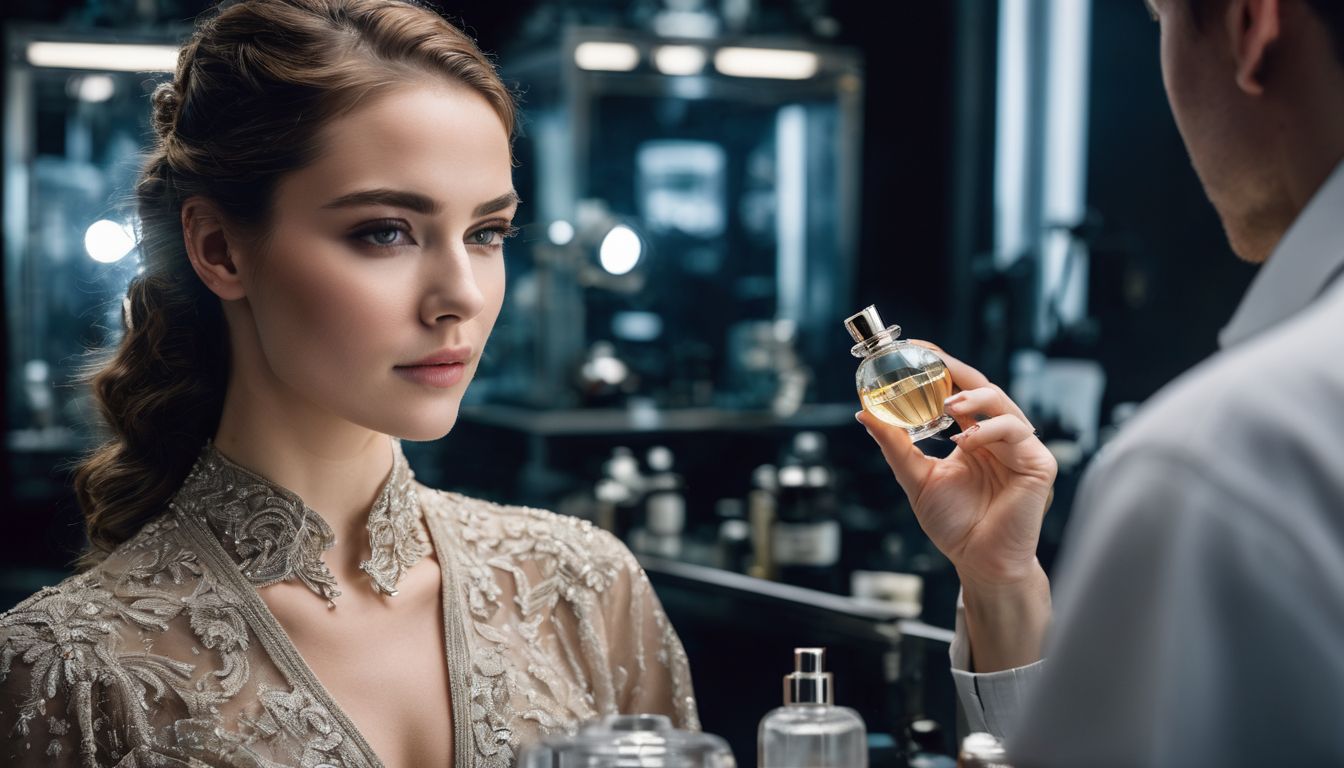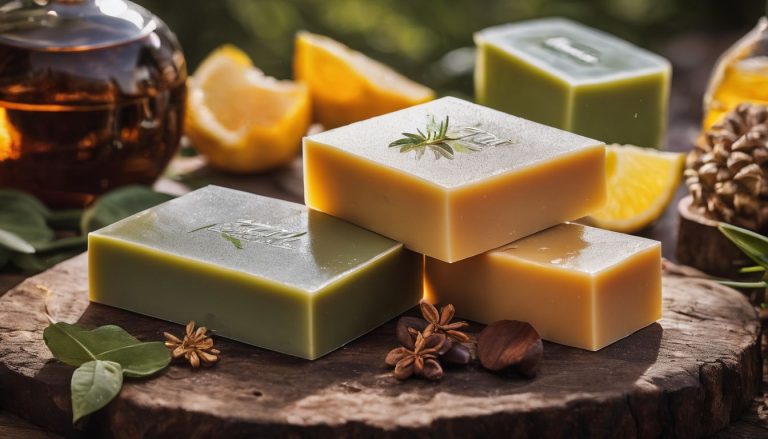Do Pheromone Oils Work as Attractants? The Science Behind Pheromone Perfumes
Are you wondering if there’s a secret scent to make you irresistible? Pheromone perfumes promise just that, boasting ingredients meant to draw others toward you. Our blog post dives into the science and research behind these mysterious fragrances to reveal if they truly hold the power of attraction.
Keep reading; the truth may surprise you!
Key Takeaways
- Pheromone perfumes contain synthetic chemicals meant to mimic natural pheromones, aiming to increase a person’s attractiveness.
- Despite some studies indicating possible effects on human behavior, there is no definitive scientific evidence proving the effectiveness of pheromone perfumes in attracting mates.
- Individual experiences with pheromone perfumes vary significantly, and any perceived benefits could potentially be explained by the placebo effect rather than actual chemical attraction.
- The power of scent memory may play a role in attraction, as certain fragrances can evoke emotions and memories that contribute to an individual’s appeal.
- Experts recommend skepticism regarding claims about the efficacy of pheromone perfumes until more conclusive research emerges.
Understanding Pheromones
Pheromones are chemicals that organisms release to communicate with each other. While animals have been found to use them for attracting mates and marking territories, the existence of human pheromones is still a subject of debate among scientists.
What are pheromones?
Pheromones are powerful chemical signals that animals release to communicate with others of their species. Often, these chemicals play a crucial role in mating behaviors, signaling fertility or readiness to reproduce.
In the animal kingdom, pheromones can dictate social hierarchies and mark territories too. For humans, the concept is similar: it’s believed that our bodies might emit certain scents intended to attract a mate, though this is still a subject of scientific investigation.
Scientists have discovered that many creatures use these invisible odor cues for various purposes—ranging from warning off predators to leading members of a species to food sources.
The fascination with human pheromones has led to the creation of synthetic versions used in perfumes and colognes. These products claim to boost sex appeal by mimicking the natural scents associated with attraction.
Despite their popularity and widespread use, conclusive evidence on how they impact human behavior remains elusive as researchers continue exploring the mysterious world of pheromone effects and perception.
Do humans give off pheromones?
Humans do give off pheromones, although the exact nature and functions of these chemical signals are still not fully understood. Pheromones are believed to play a role in human attraction, social interaction, and communication.
While there is ongoing debate about their specific effects and whether they can be consciously perceived, studies have suggested that certain chemicals produced by the body may indeed influence human behavior in subtle ways.
The presence of pheromones is thought to contribute to the complex mechanisms underlying human interaction and attraction. Research has shown that these chemical signals could potentially affect mood or behavior, although their precise impact remains a subject of scientific inquiry.
Can humans sense pheromones?
Pheromones are chemical signals that animals use to communicate with each other. These scents play a crucial role in reproductive behaviors and social interactions among various species.
While the presence of pheromones in humans is still debated, some studies suggest that humans may be able to sense these chemical signals on a subconscious level. Although the specific pheromones that affect human behavior have yet to be identified, ongoing research indicates that there could be an underlying mechanism through which humans perceive and respond to pheromones, potentially influencing their attraction and social interactions.
Recent studies have raised interesting questions about whether humans emit and respond to pheromones similarly to animals. Even though the scientific evidence remains inconclusive on this matter, the intriguing possibility of human pheromone perception continues to stimulate discussions and investigations into our olfactory communication system‘s complexities.
The Science Behind Pheromone Perfumes
Pheromone perfumes contain specific ingredients designed to mimic natural pheromones and are believed to enhance attraction. Research suggests that while they may have some effect, their actual effectiveness is still debated among experts in the field.
What ingredients are in pheromone products?
Pheromone products typically contain synthetic compounds designed to mimic natural pheromones. These may include androstenone, androsterone, and copulins, which are believed to have an influence on human behavior and attraction.
Generally, the specific ingredients vary by product as manufacturers often combine these substances with fragrances to create a pleasant scent.
Some individuals are interested in whether pheromone perfumes work specifically on females while others seek recommendations for the best pheromone perfumes for ladies. Despite the popularity of pheromone perfumes, there is a lack of concrete evidence on their effectiveness and the specific scents used in their production.
Do pheromone perfumes actually work?
Pheromone perfumes may not work as imagined. Experts have weighed in on their effectiveness and consensus is lacking. The synthetic pheromones in these products aren’t proven to elicit the same responses from humans as natural ones do from animals.
While some believe they enhance attractiveness, scientific evidence is scarce, leading to continued debate on their real impact.
Could your fragrance be turning away potential mates? Let’s dig into how humans respond to pheromones and how it might influence attraction without us even realizing it.
Can they make you more attractive?
Despite ongoing debates about the effectiveness of pheromone perfumes, many people are interested in whether these products can enhance their attractiveness. The idea behind pheromone perfumes is that they emit scents intended to make individuals more appealing to others, particularly the opposite sex.
While some experts assert that these perfumes do work, it is essential to note that there is no concrete scientific evidence proving their effectiveness in humans, as the specific scents used in their production are largely synthetic and not based on empirical research.
Despite this lack of evidence, there continues to be widespread interest and discussion surrounding the potential attraction-boosting properties of pheromone perfumes.
Anecdotal evidence suggests a level of intrigue regarding whether certain pheromones might specifically affect females or males, with individuals looking for recommendations for the best pheromone perfumes for ladies or seeking general perspectives on attractant colognes.
The Truth about Pheromone Perfumes
Experts’ opinions on their effectiveness, the potential placebo effect, and the evidence to support their claims will be discussed in this section. Curious if pheromone perfumes really work as attractants? Keep reading to find out more!
Experts’ opinions on their effectiveness
Experts in the field of pheromone research have weighed in on the effectiveness of pheromone perfumes, acknowledging the widespread interest and debate surrounding their use. They emphasize that while some studies have suggested a potential influence of certain pheromones on human behavior, there is still no concrete evidence to support the claims made by pheromone perfume proponents.
- Many experts assert that the synthetic pheromones used in perfumes may not elicit the same responses from humans as natural pheromones do in animals.
- Research has shown that individual responses to scents can be highly subjective and influenced by personal preferences, making it challenging to determine a universal attraction effect from pheromone perfumes.
- Experts highlight the lack of consistency and replicability in scientific studies examining the efficacy of pheromone perfumes, casting doubt on their purported ability to enhance attractiveness.
- Some professionals caution against relying solely on pheromone perfumes for attraction, emphasizing the multifaceted nature of human relationships and the role of genuine personality and compatibility in forming connections.
- While acknowledging ongoing research in this area, experts encourage individuals to approach claims about pheromone perfume effectiveness with skepticism until further conclusive evidence emerges.
Potential placebo effect
Some people believe that the positive effects of pheromone perfumes may be due to a placebo effect, where individuals expect a certain outcome and perceive it as such. This could mean that the perceived increase in attractiveness or confidence when using pheromone perfumes might be more psychological than biological.
However, research has not definitively proven whether this is the case with pheromone perfumes, leaving room for ongoing debate among users and experts about their true effectiveness.
While some express skepticism about the efficacy of pheromone perfumes, others argue that they have experienced real results. This divide in opinion suggests that individual experiences with these products vary widely, making it challenging to definitively determine whether any observed effects are due to genuine chemical reactions or simply belief in their effectiveness.
Is there evidence to support their claims?
– Potential placebo effect
While some users claim that pheromone perfumes have enhanced their attractiveness, there is a lack of scientific evidence to validate these assertions. Research has yet to provide conclusive support for the efficacy of pheromone perfumes in attracting mates or increasing appeal.
The use of synthetic pheromones in these products raises questions about whether they elicit the same response in humans as natural pheromones do in animals. Furthermore, experts emphasize the need for robust empirical evidence to substantiate the alleged benefits of pheromone perfumes.
The Role of Fragrance in Attraction
Scents can have a powerful impact on attraction, with perfumes and colognes playing a key role in creating seductive effects. The power of scent memory also contributes to the allure of certain fragrances.
Perfumes’ seductive effects
Pheromone perfumes are believed to have seductive effects that can potentially enhance attractiveness. Research suggests that certain scents can trigger a positive emotional response and influence perceived attractiveness.
The power of scent memory plays a role in the seductive effects of perfumes, as particular aromas may create a lasting impression and association with charm and appeal.
The use of pheromone perfumes as an attractant has sparked widespread interest, but their effectiveness remains a topic of debate. However, understanding the science behind fragrance attraction is essential in evaluating their potential impact on human perception and interaction.
The power of scent memory
Scent memory has a remarkable influence on our emotions and behaviors. Fragrances can trigger powerful recollections and evoke specific feelings, often from distant past experiences.
This phenomenon occurs due to the close relationship between our sense of smell and the brain’s limbic system, which plays a key role in forming memories and regulating emotions. Research indicates that certain scents have the ability to transport individuals back to significant moments in their lives, evoking nostalgia or strong emotional responses.
For example, the aroma of a particular cologne may bring one back to a cherished childhood memory or remind them of someone special.
The link between scent and memory also extends to attraction. Certain fragrances can be associated with positive experiences, leading individuals to form positive associations with those scents.
Conclusion
In conclusion, while there is ongoing debate about the effectiveness of pheromone perfumes, experts have weighed in on their potential to influence attraction. Synthetic pheromones are used in these products with the aim of making wearers more appealing to others.
Despite widespread interest and discussion, concrete evidence supporting their claims remains elusive, leaving many questioning whether they truly work as attractants. The science behind pheromone perfumes continues to be a topic of curiosity and inquiry for those seeking to understand their supposed allure.
FAQs
1. What are pheromone oils and how do they work as attractants?
Pheromone oils are special fragrances that contain chemicals meant to mimic the natural pheromone signals our bodies produce, with the aim of increasing attraction.
2. Can wearing pheromone cologne really influence others around you?
Some people believe that by wearing pheromone cologne or perfumes, these scents can send out attraction signals to others through a kind of scent communication understood by our biology.
3. Are there any scientific studies on the effectiveness of pheromone fragrances?
There have been studies in the field of pheromone psychology exploring whether these scents truly work as attractants, but results vary on their actual influence.
4. What should I look for when choosing a pheromone perfume or cologne?
When searching for a pheromone perfume or cologne, you’ll want to find one with positive reviews and research its fragrance effectiveness to ensure it aligns with your desires.
5. How do I apply Pheromone attractant perfumes and oils correctly?
To use pheromones effectively, apply them like any other scent—on pulse points such as wrists and neck—allowing the natural body heat to release the fragrance gradually into the air.









